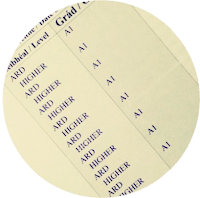“Kingship, with all its potential for good or evil, is a major theme in the play, Macbeth.”
Discuss this view, supporting your answer by quotation from or reference to the play. (1995)
This is a H1 essay.
You may also like: Full Notes on Macbeth (€)
Shakespeare’s tragedy “Macbeth” contains an elaborate exploration of the theme of power and within that, the theme of kingship. The main character’s evil plan aims at overthrowing the current ruler and assuming power over Scotland. Based on this the playwright profoundly analyses what qualities are the most important in a good king, what qualities are incompatible with kingship and the divine right of kings.
[Duncan as a great king] – you don’t need to put these in, this is just to improve readability
Before carrying out his plot Macbeth weighs up all the reasons why he wanted to proceed with it and all the arguments against his terrible murder plan. One such argument is that “this Duncan… hath been / So clear in his great office, that his virtues / Will plead like angels”. Duncan is portrayed as a wise ruler who feels strongly about the security of his country in the ongoing war with Norway. However, our encounter with this noble man is very brief. Macbeth, once he became king, did not know how to rule a country.
[Macbeth as a selfish king]
Macbeth’s major concerns are for his own safety and for the security of his own power: “Thy crown does sear mine eyeballs.”. He doesn’t even consider the welfare of the Scottish people before going ahead with the regicide. This shows that no matter how dedicated you are to your country, even as a great warrior and “Bellona’s bridegroom” – as an ordinary person you may not rule a country. This message is reflective of the prevailing belief in the divine right of kings that existed in Shakespeare’s day. Macbeth is not fit for the task: with him Scotland is “bleeding.” The tyranny is reflected by the darkness and bizarre supernatural events of the play.
[Imagery of darkness used to emphasise Macbeth’s inadequacy as king]
Darkness, nighttime and the colour black frequently referred to in the play demonstrating that there is something worth hiding. Shakespeare uses this to show just how far removed Macbeth’s kingship is from the ideal. It is always at nighttime that the Witches, the “black and midnight hags,” show their faces and act as “instruments of darkness.” After all, it was the Witches who gave Macbeth the idea to kill Duncan. Nighttime serves as the cover for Macbeth’s murders. He pleads: “Stars, hide your fires! Let not the light see my black and deep desires.” His selfish kingship is all about his desires and he knows that this should be hidden. On the night when Duncan was killed it was abnormally dark: “There’s husbandry in heaven, their candles are all out.” Most of the play is set at night time: it is only bright twice – when Duncan arrives at Inverness and when Macbeth is about to die. Both are events that subvert Macbeth’s evil plot and demonstrate Shakespeare’s views on the Macbeth’s legitimacy as a king.
[Imagery of the supernatural used to emphasise the divine right of kings]
Even more broadly, Shakespeare appeals to the supernatural to demonstrate Macbeth’s lack of fitness to be king. This is to emphasise the “unnatural” killing of the rightful king: “Unnatural deeds / Do breed unnatural troubles”. The order of things at the time hinged on a belief in the divine right of kings. When the cursed pair carry out their plan, the country descends into violent horror and disarray. Pathetic fallacy, a literary method used to illustrate deeper issues by attributing human qualities to the surroundings, is used here: “A falcon, tow’ring in her pride of place, / Was by a mousing owl hawked at and killed.” Perhaps, this is the mousing Macbeth trying to be in place of a hawk by slaughtering the towering royalty and violating the divine right of kings?
[Imagery of violence demonstrates Macbeth’s inadequacy as king]
The enormous amount of heart-stopping gruesome references to blood and violence emphasise the consequences of the inadequate regime for which Macbeth is responsible: Scotland “weeps, it bleeds, and each new day a gash Is added to her wounds.” However, the Bard of Avon not only condemns the bad ruler, but he explores the good qualities that a king should possess.
[Malcolm as an ideal king]
Desperate and helpless, Macduff arrives in England to see Malcolm, the legitimate successor to Duncan’s throne. Malcolm is almost an embodiment of all the positive qualities of kings. He, along with his brother, immediately decide to rely on themselves to preserve their dynasty by leaving Scotland despite the obvious and inevitable suspicion that it raises and their own bereavement: “Nor our strong sorrow / Upon the foot of motion.” They handle the situation with wisdom and courage, all for the sake of their kingdom. When Malcolm meets Macduff we see more of his wisdom. He adopts the personality of a man who is “not fit to govern and not even to live.” Malcolm makes sure to not jeopardise his own life and the welfare of Scotland by “testing” Macduff. Malcolm, unlike Macbeth, is able to tell appearance from reality in his superiority as king.
[Examination of ideal kingship]
The main aspects highlighted by Malcolm that are absolutely incompatible with a decent king are lying, voluptuousness and greed. He plans to “cut off the nobles for their lands, / Desire his jewels… Your wives, your daughters, / Your matrons, and your maids could not fill up / The cistern of my lust.” Satisfied with Macduff’s reaction Malcolm opens up: “What I am truly, / Is thine and my poor country’s to command” and admits that he is not ridden with vices as he had pretended. We find out Shakespeare’s vision of king-becoming graces: “verity, temperance, stableness, / Bounty, perseverance, mercy, lowliness, / Devotion, patience, courage, fortitude…” The return of the rightful king is marked by the delight of the army. Macbeth, on the contrary, is full of bravado and feels invincible one minute and then left thinking about “all our yesterdays have lighted fools / The way to dusty death… It is a tale / Told by an idiot, full of sound and fury, / Signifying nothing” as Scotland, Lady Macbeth and his soul are all deteriorating around him.
[Conclusion]
Shakespeare offers a detailed examination of the concept of kingship in this play. However, I cannot quite trust that “Macbeth” was written as a pure form of art. James I, the king of England at the time, Shakespeare’s patron, was one of the main proponents of the divine right of kings and a prominent witch-hunter. On the one hand, I feel that the play is a piece of propaganda written to please the sovereign and this casts a significant shadow on anything Shakespeare has to say about kingship. I ask myself what did Duncan have to do to become king? My suspicion is that it has more in common with Macbeth’s path than Shakespeare dares to admit. On the other hand, I understand that Shakespeare lived at a different time. Notwithstanding all of this, his imagery and plot line emphasise all the selfless aspects of kingship and deliver it through a compelling play.
This is the 1995 English paper.
 |
| Best of luck! |

